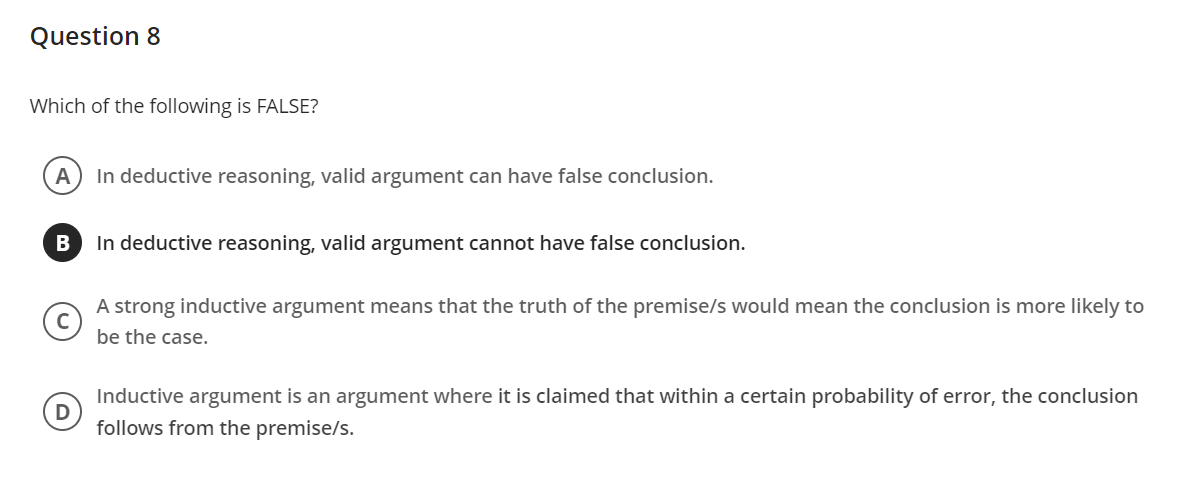Which of the following is FALSE? A In deductive reasoning, valid argument can have false conclusion. B In deductive reasoning, valid argument cannot have false conclusion. A strong inductive argument means that the truth of the premise/s would mean the conclusion is more likely to be the case.
Which of the following is FALSE? A In deductive reasoning, valid argument can have false conclusion. B In deductive reasoning, valid argument cannot have false conclusion. A strong inductive argument means that the truth of the premise/s would mean the conclusion is more likely to be the case.
Algebra & Trigonometry with Analytic Geometry
13th Edition
ISBN:9781133382119
Author:Swokowski
Publisher:Swokowski
Chapter10: Sequences, Series, And Probability
Section10.8: Probability
Problem 29E
Related questions
Question

Transcribed Image Text:Question 8
Which of the following is FALSE?
A
In deductive reasoning, valid argument can have false conclusion.
In deductive reasoning, valid argument cannot have false conclusion.
A strong inductive argument means that the truth of the premise/s would mean the conclusion is more likely to
be the case.
Inductive argument is an argument where it is claimed that within a certain probability of error, the conclusion
follows from the premise/s.
Expert Solution
This question has been solved!
Explore an expertly crafted, step-by-step solution for a thorough understanding of key concepts.
This is a popular solution!
Trending now
This is a popular solution!
Step by step
Solved in 2 steps

Recommended textbooks for you

Algebra & Trigonometry with Analytic Geometry
Algebra
ISBN:
9781133382119
Author:
Swokowski
Publisher:
Cengage

Algebra & Trigonometry with Analytic Geometry
Algebra
ISBN:
9781133382119
Author:
Swokowski
Publisher:
Cengage